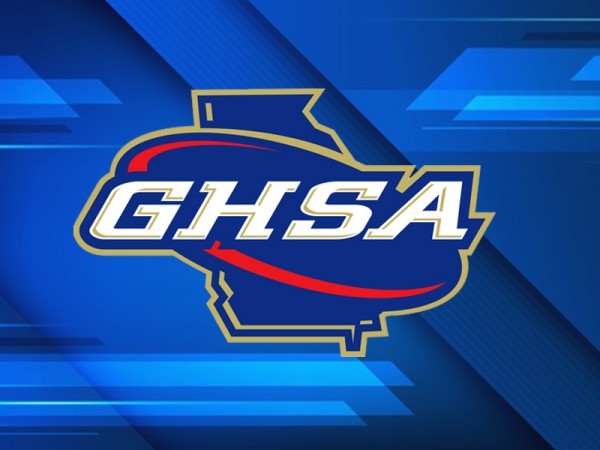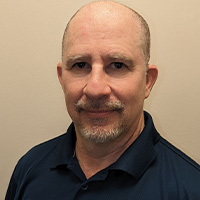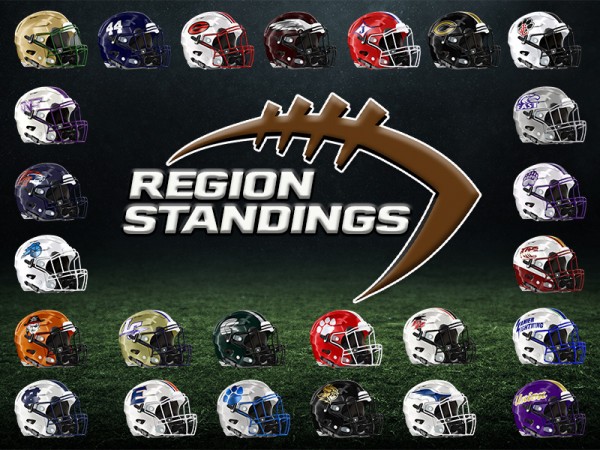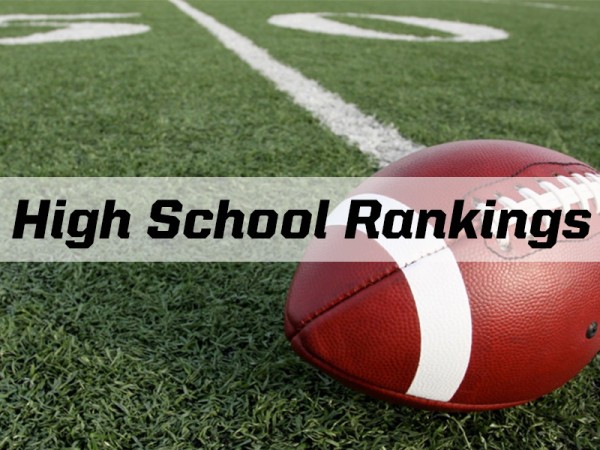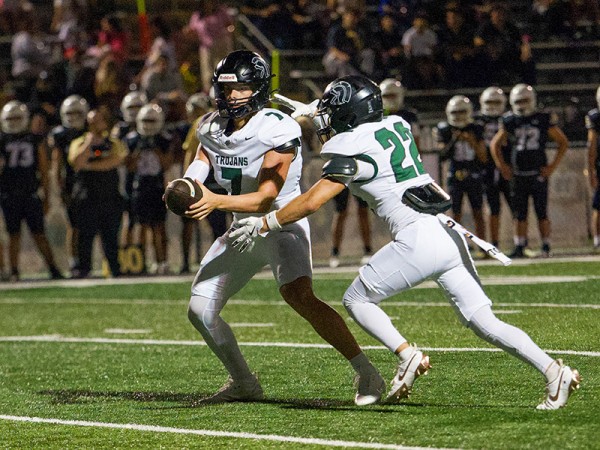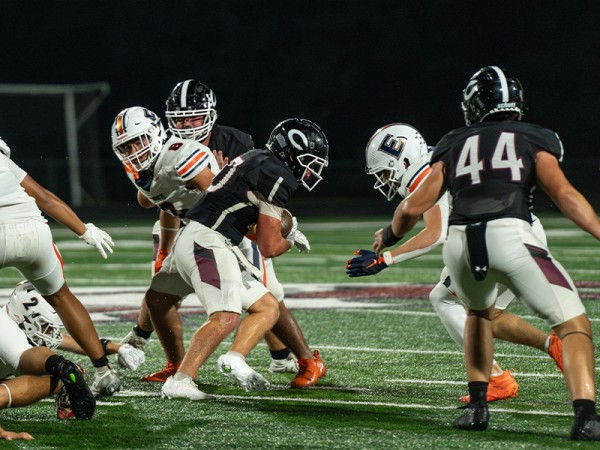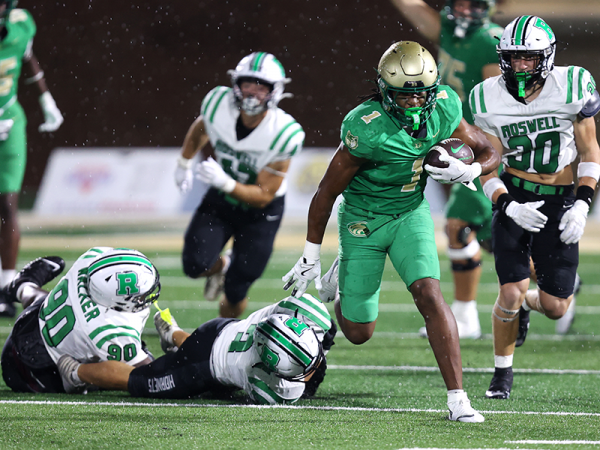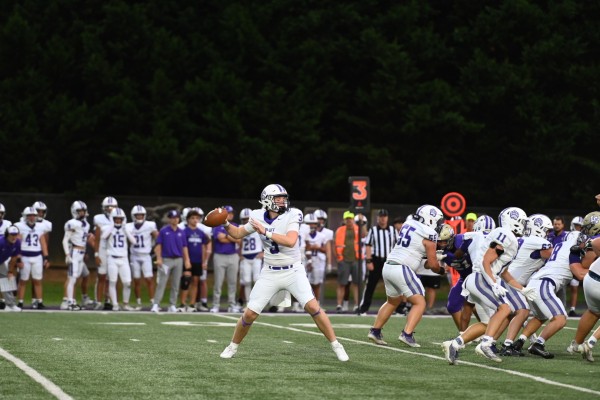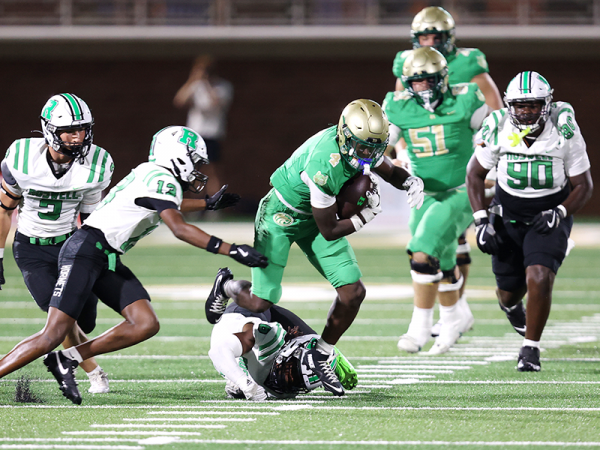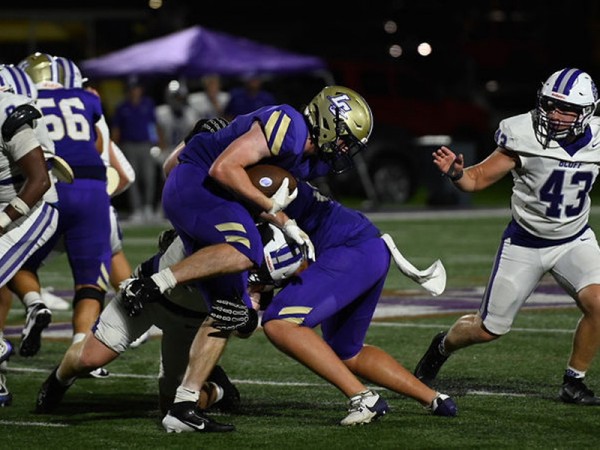With the next GHSA reclassification meeting looming on Sunday, the state’s private schools, in one statement to the AJC, made both a long-awaited-for admission to the state’s public schools while also seeming to take a shot at any perceived “advantages” they may have.
Woodward Academy athletic director Jose Fernandez made the following statement to AJC writer Todd Holcomb on Wednesday while discussing a competitive-balance proposal that appears to be quickly gaining popularity in the GHSA reclass committee:
“Undoubtedly, the ability of private schools to attract students from outside their attendance zone is an advantage and a variable that can lead to athletic success,” admitted Fernandez, who is on the GHSA reclass committee.
Two years ago, the GHSA made a separate private classification for smaller schools in Class 3A and below, locking them out of the mainline classification state titles. The move was discussed and approved by the GHSA after private schools won 73 of the 152 overall state championships in all sports in Class 3A and below during the previous two-year classification cycle.
Those smaller private schools want back into the main GHSA fold. However, the eight largest private schools still play in the various GHSA classifications from Class 4A and up. Scheduling issues are often cited as the reason why private schools want to be designated into regions with public schools.
Public schools have long contended that public and private schools do not operate on the same level as far as how rosters and players are received. Public schools have designated residency boundaries. Private schools do not.
But in that same statement to Holcomb, Fernandez also appears to suggest that some public schools are already on the same playing field as private schools.
“Many public schools are also (getting students outside their attendance zone) as well, and I think it is time for us as a state organization to look at the many other variables that lead to athletic success instead of focusing on just one variable. ... Private schools simply want to be treated equitably compared to public schools,” he told Holcomb.
Some might argue that he is correct about some public schools reaching beyond their prescribed borders. But is the issue really about equitability? For decades, the perception has been that private schools have had the ability to selectively pick their students—and athletes—where public schools do not. Despite his insinuation about public school recruiting, the requirements for proving district residency are often more onerous on the public systems.
The AJC story referenced that a straw poll taken back in February showed that 11 of the 18 reclass committee members did not favor a competitive balance model, with five of the seven votes approving the model coming from private school representatives, including Fernandez. The competitive balance model, along with admitting they may have an inherent advantage over public schools, seems to be the way private schools are willing to compromise to get the GHSA to consider rejoining all the private and public schools into one big, happy GHSA family -- and all playing for the same state titles once again.
AccessWDUN Sports and Friday Game Night reached out to a pair of northeast Georgia area football coaches -- Lumpkin County’s Heath Webb and East Jackson’s Cameron Pettus -- who understand the arguments well. Both schools play in regions with private schools, and neither hesitated to reflect on the AJC article, which also talked to three other athletic directors from Atlanta-area private schools and an Athens Academy representative.
Lumpkin County plays in Region 6-3A, which has Greater Atlanta Christian, and finished second just ahead of GAC in the standings. They made the Class 3A playoffs but were knocked out in the first round.
East Jackson plays in Region 8-2A, which housed both the 2024 Private state title winner, Hebron Christian, and the state runner-up, Prince Avenue Christian. The Eagles finished fifth but still made the Class 3A playoffs in the Postseason Rankings poll.
Both coaches had plenty of thoughts.
“The thing that I see from that article that he wrote is the fact that the private schools are recognizing that they do have an advantage, which is why they’re saying they like the competitive balance model,” Webb said. “I can appreciate the fact that that's where they're at. Still, private schools are businesses, whereas public schools are entities of the government that are supposed to educate our community.
“I don't begrudge the private schools for recruiting. They have to if you look at it from a business model, not from an athletics model. They have to recruit. That’s how they get revenue. But that also means we’re not all playing on the same level.”
Pettus elaborated.
“I think it's kind of funny that (the private schools) are whining about it. I think it's kind of hilarious because we've had how many years where it has been skewed in their favor?” Pettus said. “I don't understand why they have an issue with playing other teams that are similar to themselves. They choose to be like that. So I don't understand why they are all up in arms about it, except that they want their cake and eat it too.”
As for the competitive balance model and those arguments, both coaches also had some issues with that.
“It's not equal ground. We're not the same,” Webb said. “Yes, we both put 11 men on the field at a time in football. But outside of that, we're not operating the same. We're not getting our kids the same way.
“Again, I don't begrudge the private schools for running their business the way they see fit to try to make sales good for them. That's not a problem for me. But it's not what we should be competing against because they're just working on a different model than us.”
“For the programs that are very, very good, like consistent winners, where it doesn't matter who the coach is, probably, where the cycle of kids are usually extremely, extremely good, I can see merit in that model,” Pettus said.
“But I think the other side would be is if you go into a program that has not been traditionally very good. If you have a very good year and move up, but then you drop back down again on that (talent) cycle, it's going to be a little bit harder for the smaller schools. I just think what the private schools want is a little bit of everything.”
Nothing is ever decided on the first reclass meeting. But Sunday’s could offer more than just a small glimpse of which direction the GHSA as a whole wants to go.
Maybe. Perhaps. This could be story of the summer, and perhaps beyond, for high school athletics.


